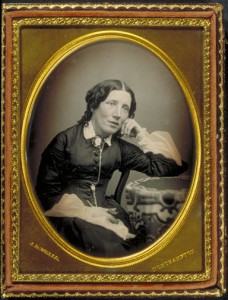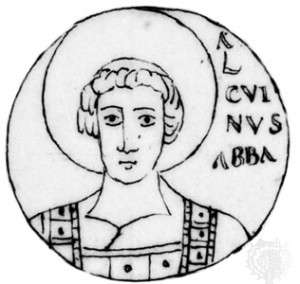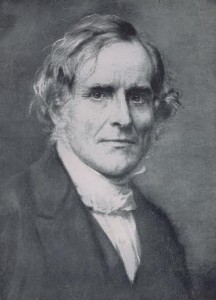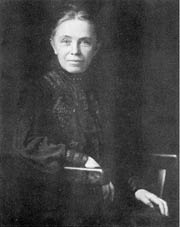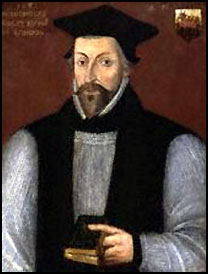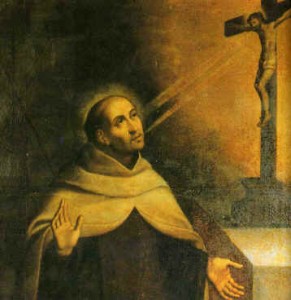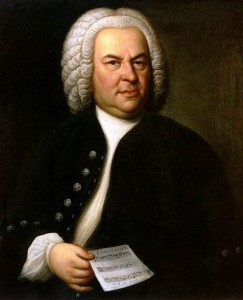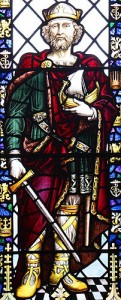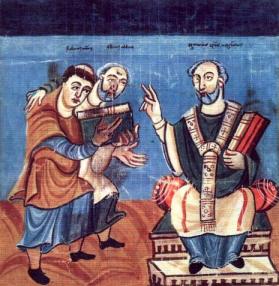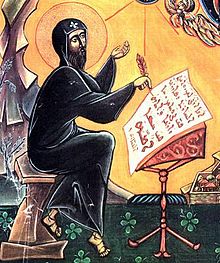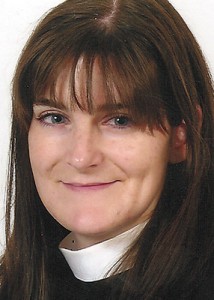Since they were both teachers, among other things, Harriet Bedell vs. Thomas Gallaudet can mean only one thing: Educational Armageddon! The winner of this penultimate (we just love saying that word) match-up of the Saintly Sixteen will square off against Harriet Beecher Stowe in the next round.
Yesterday Phillips Brooks defeated Catherine of Siena by a nose (head?) as preacher trumped mystic 53% to 47%. (okay, it wasn't that close but when else besides, perhaps, John the Baptist's feast day can we make references to disembodied skulls). He'll go on to face Julia Chester Emery in the Elate Eight.
With the conclusion of today's showdown the Round of the Elate Eight is nearly set. On Monday Thomas Merton takes on Charles Wesley for a crack at Anna Cooper. At this point, the others moving on are Basil the Great, Julia Chester Emery, Lydia, Harriet Beecher Stowe, Phillips Brooks, and Anna Cooper.
As we head into the weekend and yet another bout with LMW (Lent Madness Withdrawal) we leave you with a challenge. Help us get to 10,000 likes on Facebook before the 2014 Golden Halo is awarded. We're over 9,500 at this point so it's an attainable goal if we all pull together and compel people to like us during coffee hour, at the Peace, in the church parking lot, talking to strangers at IHOP, whatever. The Supreme Executive Committee likes big, fat round numbers.
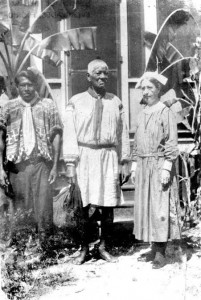
Photo courtesy of the State Archives of Florida
Harriet Bedell
Whether she was riding horseback in Oklahoma, mushing on dog sleds to remote villages in Alaska or poling through canals in the Florida Everglades (in her high-topped, snake-resistant boots), Deaconess Harriet Bedell, though tiny in stature, lived a super-sized life for God.
The Deaconess, as she is still known among Episcopalians in southwest Florida, never wavered in her faith or in her complete devotion to native people.
About her first post, among the Cheyenne people at the Whirlwind Mission in Oklahoma where she served with Deacon David Oakerhater (Lent Madness 2012 alum), she wrote:
We open school with Morning Prayer... I then take my twenty little ones to my house...which has this advantage, that I am ready to answer any immediate call which may come to the house. There is no doctor within twelve miles, so we have to act as doctors, and nurses, besides being lawyers, amanuenses, and spiritual advisors.
Her work in Alaska between 1916 and 1931, first in Nahana and then after a year in Stevens Village, was similar. Except with snow.
When the mission closed in Alaska, the Deaconess was sent to Florida to drum up funds for mission work. She was appalled at the living conditions of the Seminole people and how the people were put on display for tourists, wrestling alligators, and staging mock weddings. Apparently an appalled deaconess was a formidable deaconess, and, within a year, she was beginning the hard, patient work of winning the trust of the Seminole tribe.
She supported her new mission with the assistance from leaders of the Collier Corporation, a citrus concern that owned great swaths of the Everglades. One executive, George Huntoon, suffered the brunt of her “persistence.” He recalled, according Marya Repko’s her excellent 2009 book, Angel of the Swamp, “that she would come tromping up the stairs...to request help. In an attempt to avoid these confrontations, his secretary would say that he was not in while he snuck down the fire escape. It did not take long for the Deaconess to realize the ruse and meet him at the bottom of the steps.” Years later Huntoon observed, “When the Deaconess got after you for something. I found it was best to acquiesce and comply with her request because she would keep after you until you got it done for her.”
Margory Stoneman Douglas, a historian and of the Everglades, wrote of the Deaconess in 1947, “The deaconess, like a small steam engine in dark-blue petticoats, walks fast in and out of the trail camps, speaking to everybody by name, asking about sick babies, bringing some old man a mattress pad for his aching bones...taking somebody to the hospital, or getting work for the boys.”
According to Repko, someone once asked a Seminole man if he had known the Deaconess. He replied, “Yes, and I loved her.” Then he pointed to the heavens and said, “she knew God.”
-- Heidi Shott
 Thomas Gallaudet
Thomas Gallaudet
One of the great things about Thomas Gallaudet is his amazing family. His grandfather, Peter Wallace Gallaudet, was the personal assistant to George Washington while the Presidency was in Philadelphia. His father, Thomas Hopkins Gallaudet, is considered by many to be the father of manual (i.e. sign-language based) Deaf Education in the U.S.
Gallaudet’s mother, Sophia Fowler, is a woman Gallaudet rightly held in high esteem. In a sermon, Gallaudet describes how his mother, who was deaf from birth, taught him sign language. “I learned this powerfully descriptive method of communicating ideas from my mother. I remember well how I watched her face and hands as she affectionately tried to train me in the right way.” Among other things, she taught him that deafness was not an impediment to intelligence or achievement, as she actively lobbied members of Congress to support the Columbia Institution for the Deaf (now Gallaudet University). Gallaudet’s youngest brother, Edward Miner Gallaudet, was Columbia’s president for 46 years.
Our Thomas Gallaudet was no slouch, mind you. It’s worth noting that, in a time when one could not receive communion without being confirmed, and one could not be confirmed without reciting the Lord’s Prayer, the sacraments were almost completely denied to those who could not speak. Gallaudet’s work in providing signed services made it possible, not only for the deaf to “hear” the service, but allowed them to be confirmed, receive communion, and become ordained.
“There is no reason, therefore,” Gallaudet preached, “why deaf-mute men, fitted to be admitted to priest's orders, should not minister among their own kind in the language which makes prayer and praise common to those who have assembled (intelligently, notwithstanding their terrible deprivation) around the table of their Lord and Master, the Christian altar, and as they stretch forth their hands so eagerly and earnestly to receive the consecrated elements, and to spiritually feed on the Body and Blood of Christ, to know in their inmost souls the meaning of the encouraging word, ‘Ephphatha.’”
Gallaudet changed the hearts and minds of people in the Episcopal Church to believe that the deaf could and should, not only be welcomed, but lead and minister to others. That he did so while remaining beloved by all throughout his life is a testament to how he practiced what he preached: “In all works of practical benevolence, zeal must be combined with discretion, and earnestness must be controlled by judgment. And let us ever be ready to say in our hearts, that if this work, which is so dear to us, is not of God, let it not prosper, but let providential circumstances bring it to a speedy termination. This is looking at our labor with the eye of true Christian philosophy.”
P.S. Happy Deaf History Month!
-- Laura Darling
Vote!
[poll id="97"]
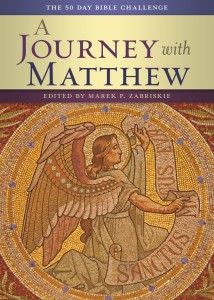 We're also pleased to announce a great way to read yourself through Eastertide, A Journey With Matthew: The 50 Day Bible Challenge.
We're also pleased to announce a great way to read yourself through Eastertide, A Journey With Matthew: The 50 Day Bible Challenge.


